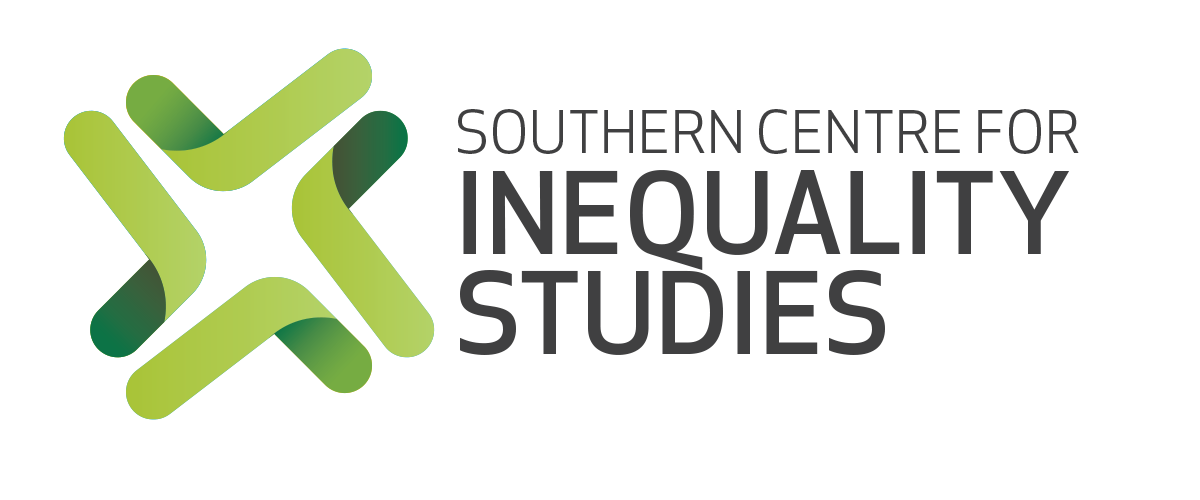7Qs for Academics Sandiswa Mapukata
- SCIS
Today we speak to Sandiswa Mapukata, a research associate on the Future of Work(ers) project at SCIS
This is an ongoing series where we introduce some key researchers and academics getting to understand their work, their developing research interests as well as what keeps them engaged.
Explain the nature of your work and/or how it relates to inequality.
I am a research associate on the Future of Work(ers) project. The project investigates how digital and technological innovations are impacting on working conditions in the global South. When I first joined the project (and the SCIS), I undertook research on the digital divide and how it may impact on workers’ ability to work remotely within the context of the COVID-19 pandemic. Right now, I am finalising a proposal for research that will be undertaking on the future of work in the banking and financial sector in South Africa and Mozambique. South Africa is the most-developed member of the Southern African Development Community (SADC) whilst Mozambique is one of the least developed members of SADC in terms of its gross domestic product (GDP). Both countries provide an opportunity to study the interaction between technological innovations and working conditions in the banking sector for two countries based in the global South.
Why do you think inequality remains such an intractable social and economic problem?
Inequality is intrinsic to capitalism. Unfortunately, the capitalist system has become increasingly predatory over the last few years. Current conversations around the profit-driven patenting and distribution of the COVID-19 vaccine is a good example of the predatory nature of capitalism in it is current form. Predatory capitalism has worsened inequalities globally. It is for this reason that I also worry about how inequalities will manifest when we reach the apex of the climate crisis.
What continues to keep you engaged in your work or areas of research?
My passion for understanding ideas and for thinking about how the market contributes to inequalities keeps me engaged in my work. I would like to make some form of a contribution to the increased production of policy-relevant research that would empower key stakeholders to address inequalities in their contexts.
What is one thing your field is not focusing on that it should?
More research needs to be done around how the market actively contributes to inequalities. The market exists as an actor that actively contributes to the perceptions that may either exacerbate or improve inequalities. It is for this reason that I would like to undertake PhD research that would investigate the interaction between the development of FinTech hubs and urban development imaginaries in the global South. I am interested in how digital and technological innovations in the banking and financial sectors may contribute to the imaginaries that would either worsen or improve inequalities in the cities across the global South.
Who are some academics (in your field or otherwise) whose work you follow closely? Why?
Although he is a revisionist and reactionary, I do follow Niall Ferguson’s work quite closely as he has mastered the art of making academic writing both exciting and compelling for non-academic audiences. I think that this is a skill that left-leaning scholars need to learn in order to make our arguments more compelling and accessible for non-academic audiences. My colleague Professor Edward Webster produces important work on the interaction between processes of automation/digital and technological innovations and work that I draw from as I continue to grapple with these questions. There is also a young scholar, Dalia Gebrial, who is currently producing work on the racialized and gendered nature of changing working conditions within the platform economies. I find her work incredibly compelling as it forces me to really consider how social inequalities interact with technologies, particularly in the context of work.
What books are you currently reading?
- The Goddess of Mtwara and Other Stories by various authors.
- How Europe Underdeveloped Africa by Walter Rodney
- Apartheid, Guns and Money: A Tale of Profit by Hennie van Vuuren
Complete the sentence: “The first thing I do each morning once I get up is …
… look at the main topics of discussion on Twitter.
If you are interested in her work, please follow her at: @Sandiswa_17 and contact her through: sandiswa.mapukata@wits.ac.za
This is an ongoing series of interviews with prominent academics and researchers.


